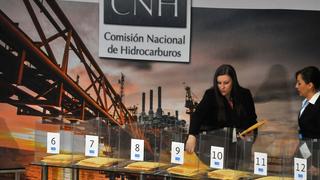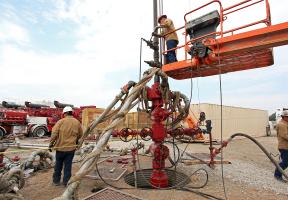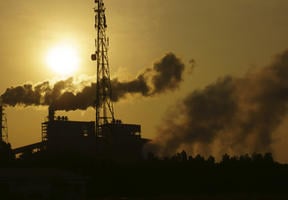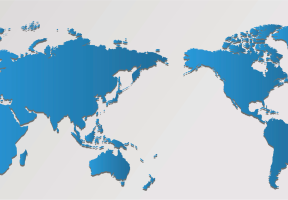It All Starts with an Oil Exploration License
Updated on 12.08.202310 min read
Before they can prospect an area, oil companies must be awarded an exploration license by the relevant authorities. The license covers a very specific area and stipulates very specific terms and conditions. Oil companies compete in international licensing rounds to be allowed to explore sedimentary basins.

© AFP Photo - Maria Calls
Oil companies cannot conduct surveys and drill exploration wells wherever and whenever they want. They first have to negotiate an oil and/or gas exploration license with the host country government. The license allows them to carry out exploration operations in a closely defined area; sometimes even the depth is specified.
This also applies to territorial waters, which extend 200 nautical miles (370 kilometers) out from the coast. This explains why disputes sometimes arise when maritime boundaries are defined.
A Risky Proposition
To unlock the value of their and subsurface resources, countries turn to the oil companies that have the best technical track record and offer the best exploration work program commitments. That’s why today these licenses are usually awarded after international licensing rounds.
In response, interested companies submit detailed proposals (bids) that set out:
- Their commitment concerning the total amount they intend to invest to explore the area. The companies bear the entire cost of the work and will only be reimbursed if a field is brought on stream.
- A commitment on the type and amount of work they intend to carry out.
Investing in a project is a risky proposition for companies. The work is very expensive, with no guarantee of a commercial oil or gas find. The success rate of exploration wells has improved from an average of one in ten in the past, but is still only about one in three. This risk is the reason why companies often team up with one or more partners in consortiums or joint ventures — if their gamble doesn’t pay off, they have limited the financial impact by sharing the costs.
After the licensing round closes, the country concerned reviews the various bids and selects a company, joint venture or consortium. The license is awarded for a limited period of time — two to five years — and can sometimes be extended, for one or two further periods.
A Global Market
Oil companies can also sell or swap some or all of their interests in the area to be explored, which is a way of managing their acreage — all their licenses worldwide. This has created a permanent global market for oil exploration assets. Their financial value changes over time based on a variety of factors, especially the results of operations.
Each oil company has its own team of specialists in charge of acreage. They continuously monitor all proposed oil exploration asset sales or swaps worldwide. These offers give rise to hotly disputed negotiations.
















